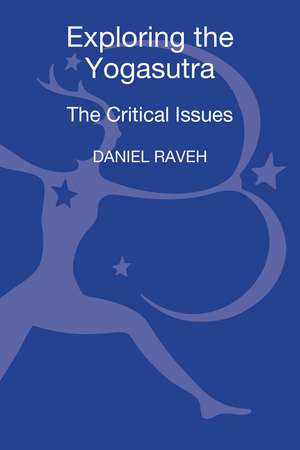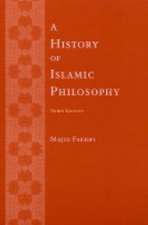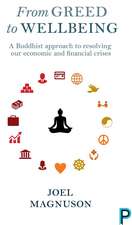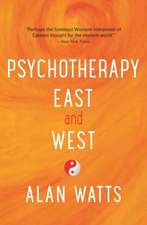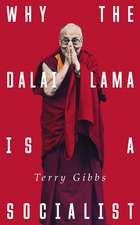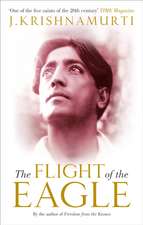Exploring the Yogasutra: Philosophy and Translation
Autor Dr Daniel Ravehen Limba Engleză Hardback – 7 mar 2012
Patañjali's Yogasutra is an ancient canonic Indiantext composed in Sanskrit in the 3rd or 4th century. Belonging to a verydifferent cultural milieu, this multi-layered text is philosophical,psychological and practical in nature. Offering a philosophical reading ofPatañjali's Yogasutra, this book discusses themes such as freedom, self-identity, timeand transcendence, and translation - between languages, cultures and eras. Drawing substantially upon contemporary Indian materials, it discussesfor the first time classical yoga as reflected upon by Daya Krishna (1924-2007)with constant reference to Krishna Chandra Bhattacharyya's (1875-1949) studiesin yoga philosophy. The genuine attempt on behalf of these two originalthinkers to engage philosophically with Patañjala-yoga sets the tone of thetextual exploration provided here.
This book features a new annotated translation ofthe Yogasutra, and the author provides a useful background to the extensive Samkhya terminologyemployed by Patañjali. Daniel Raveh also offers a close reflection of the veryact of translation, and the book concludes with suggestions for further readingand a glossary of central notions.
| Toate formatele și edițiile | Preț | Express |
|---|---|---|
| Paperback (1) | 236.84 lei 6-8 săpt. | |
| Bloomsbury Publishing – 7 mar 2012 | 236.84 lei 6-8 săpt. | |
| Hardback (1) | 889.23 lei 6-8 săpt. | |
| Bloomsbury Publishing – 7 mar 2012 | 889.23 lei 6-8 săpt. |
Preț: 889.23 lei
Preț vechi: 1141.00 lei
-22% Nou
Puncte Express: 1334
Preț estimativ în valută:
170.15€ • 185.41$ • 143.38£
170.15€ • 185.41$ • 143.38£
Carte tipărită la comandă
Livrare economică 23 aprilie-07 mai
Preluare comenzi: 021 569.72.76
Specificații
ISBN-13: 9781441146229
ISBN-10: 1441146229
Pagini: 184
Dimensiuni: 156 x 234 x 15 mm
Greutate: 0.44 kg
Ediția:New.
Editura: Bloomsbury Publishing
Colecția Continuum
Locul publicării:London, United Kingdom
ISBN-10: 1441146229
Pagini: 184
Dimensiuni: 156 x 234 x 15 mm
Greutate: 0.44 kg
Ediția:New.
Editura: Bloomsbury Publishing
Colecția Continuum
Locul publicării:London, United Kingdom
Caracteristici
Discusses classical yoga as explored by two of the most original thinkers of contemporary India.
Notă biografică
Daniel Raveh is Lecturer of Indian and Comparative Philosophy at Tel Aviv University, Israel.
Cuprins
Acknowledgements\ Abbreviations \ List of Transliteration \ Entrée: Translating theOther: Reflections on a Fictional Dialogue \ Introduction: Yoga, Translation,the Other \ 1. Abhyasa/Vairagya: AConceptual Investigation into the Process of Yoga \ 2. Revisiting avidyaand abhinivesa: A note on Yoga Psychology \ 3. Rethinking Prajña: Yogasutra 1.49 under aPhilosophical Magnifying Glass \ 4. Text as a Process: A dialogue with DayaKrishna\ 5. "The Undeciphered Text: Anomalies,Problems and Paradoxes in the Yogasutra" by Daya Krishna \ ConciseGlossary \ Appendix I: Introduction to the Yogasutra Translation, or: why another translation? \ Appendix II: TheYogasutra in Transliteration \ Appendix III: The Yogasutra in Translation \Bibliography \ Index
Recenzii
'Thinking anew with Patanjali: this is a modern-day translation and meditation on the spiritual praxis and philosophy of the Yogasutras, the great ancient Indian classic. Daniel Raveh's refreshing book is, at the same time, a sensitive reflection on meaningful cross-cultural and cross-epochal translation which he sees as a process of creative transformation, a process inevitable for retaining significance.'
'Raveh's thoughtful reflections on the nature of translation, his investigation of five key themes: practice, dispassion, ignorance, clinging, and yogic knowledge, as well as his skilfully rendered new translation of the Yoga Sutra make this book indispensible reading for anyone with a serious interest in the study of classical Yoga.'
'As a philosophical work attempting to answer some questions that Patañjali's YS raises, it is a refreshing change from the recent trend of Yoga books dealing mainly with "physical-Yoga".'
'Exploring the Yogasutra presents a new, engaging perspective on Patanjali from a philosophical point of view. It is a contribution invaluable for anybody interested in this authoritative source of Yoga theory.'
'Raveh undertakes an extraordinary clarification of the old, profound, paradoxical, often mysterious inward-seeking inwardness of the Yogasutra...Altogether, the book is a great didactic success in the translation of the thought and practice of one culture into the terms of another.'
'Raveh's thoughtful reflections on the nature of translation, his investigation of five key themes: practice, dispassion, ignorance, clinging, and yogic knowledge, as well as his skilfully rendered new translation of the Yoga Sutra make this book indispensible reading for anyone with a serious interest in the study of classical Yoga.'
'As a philosophical work attempting to answer some questions that Patañjali's YS raises, it is a refreshing change from the recent trend of Yoga books dealing mainly with "physical-Yoga".'
'Exploring the Yogasutra presents a new, engaging perspective on Patanjali from a philosophical point of view. It is a contribution invaluable for anybody interested in this authoritative source of Yoga theory.'
'Raveh undertakes an extraordinary clarification of the old, profound, paradoxical, often mysterious inward-seeking inwardness of the Yogasutra...Altogether, the book is a great didactic success in the translation of the thought and practice of one culture into the terms of another.'
Descriere
Descriere de la o altă ediție sau format:
Patanjali's "Yogasutra" is an ancient canonic Indian text composed in Sanskrit in the 3rd or 4th century. This title offers a philosophical exploration of the "Yogasutra", looking at themes of freedom, self-identity, time and transcendence, and translation - between languages, cultures and eras.
Patanjali's "Yogasutra" is an ancient canonic Indian text composed in Sanskrit in the 3rd or 4th century. This title offers a philosophical exploration of the "Yogasutra", looking at themes of freedom, self-identity, time and transcendence, and translation - between languages, cultures and eras.
